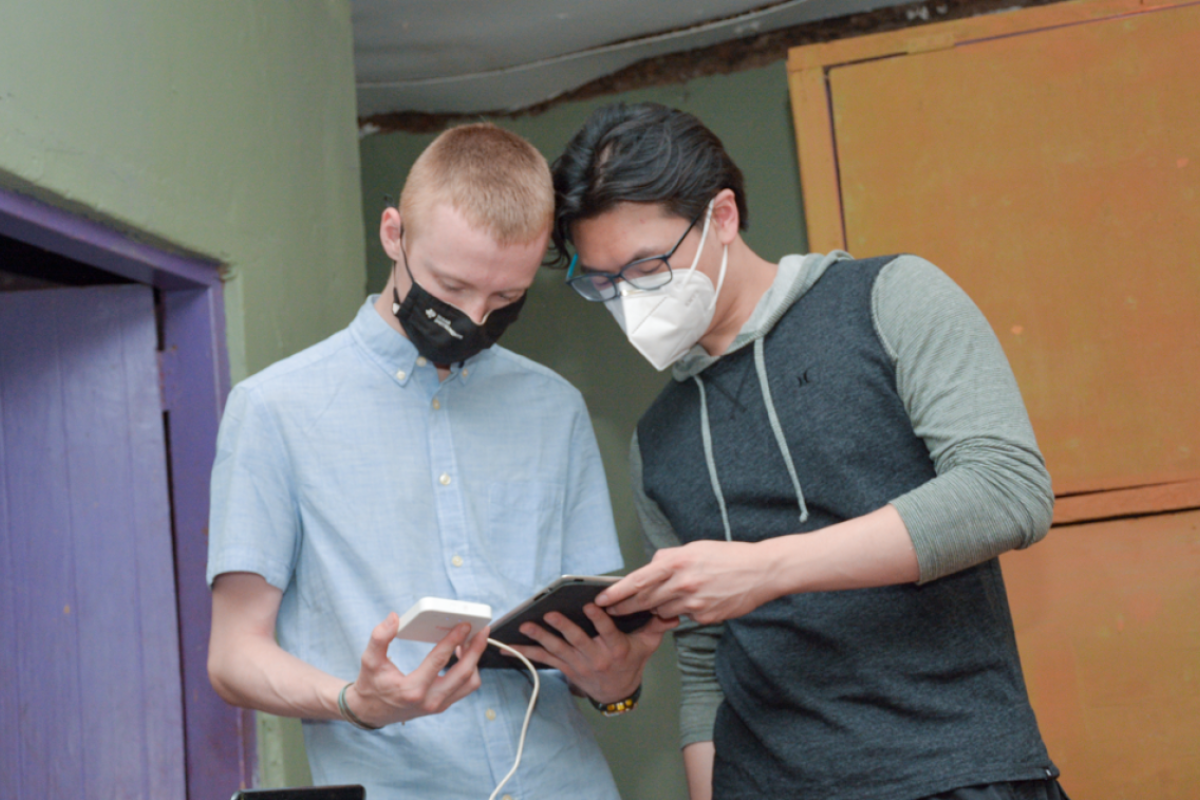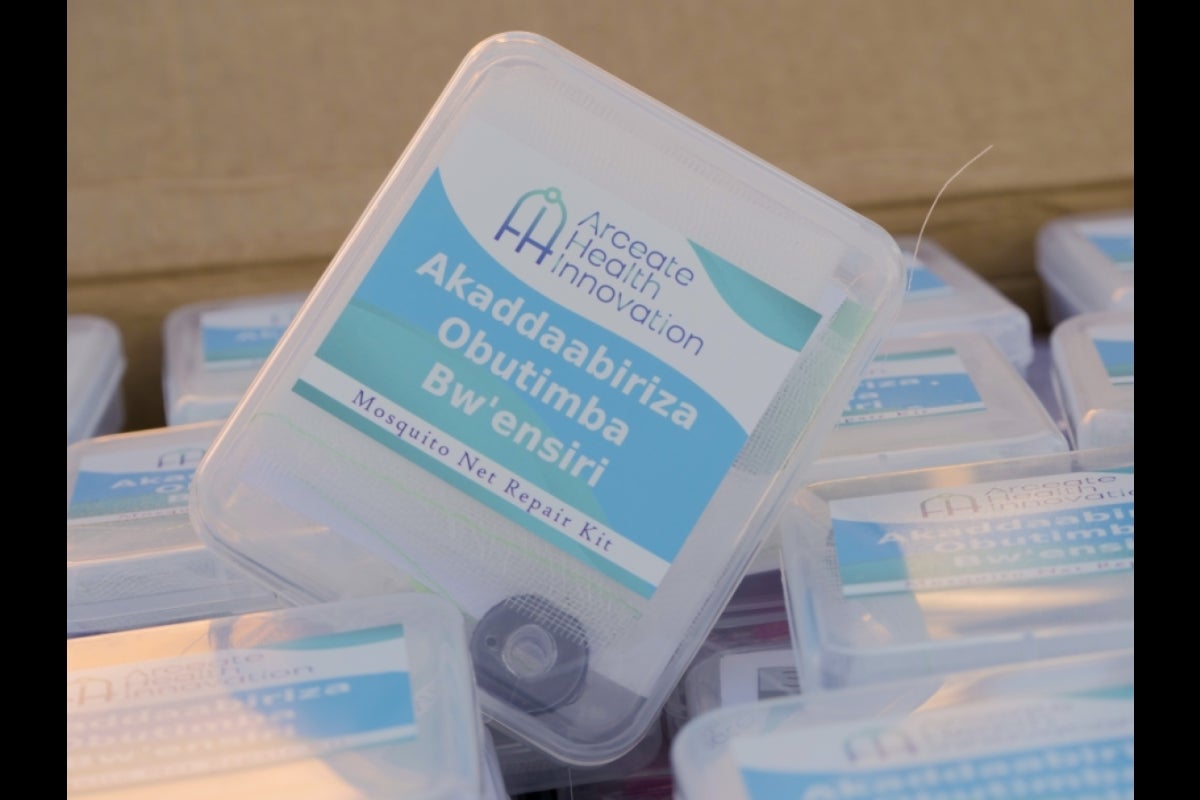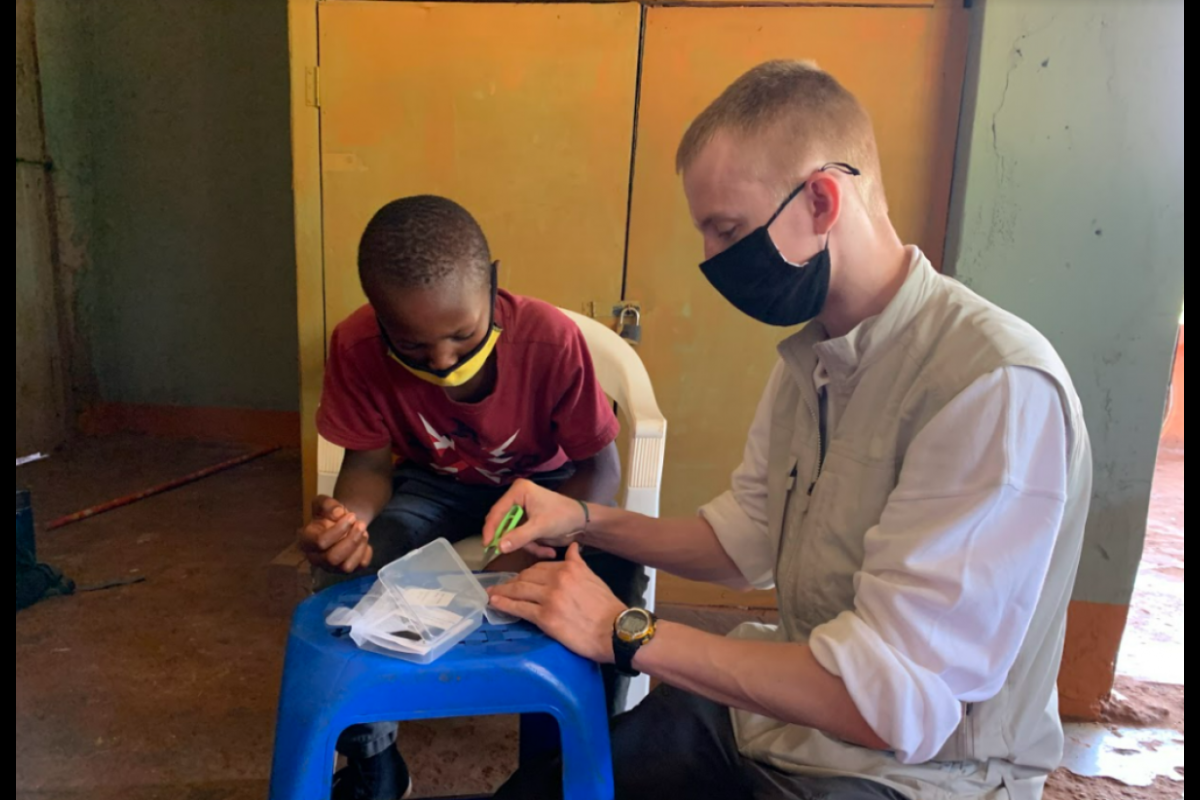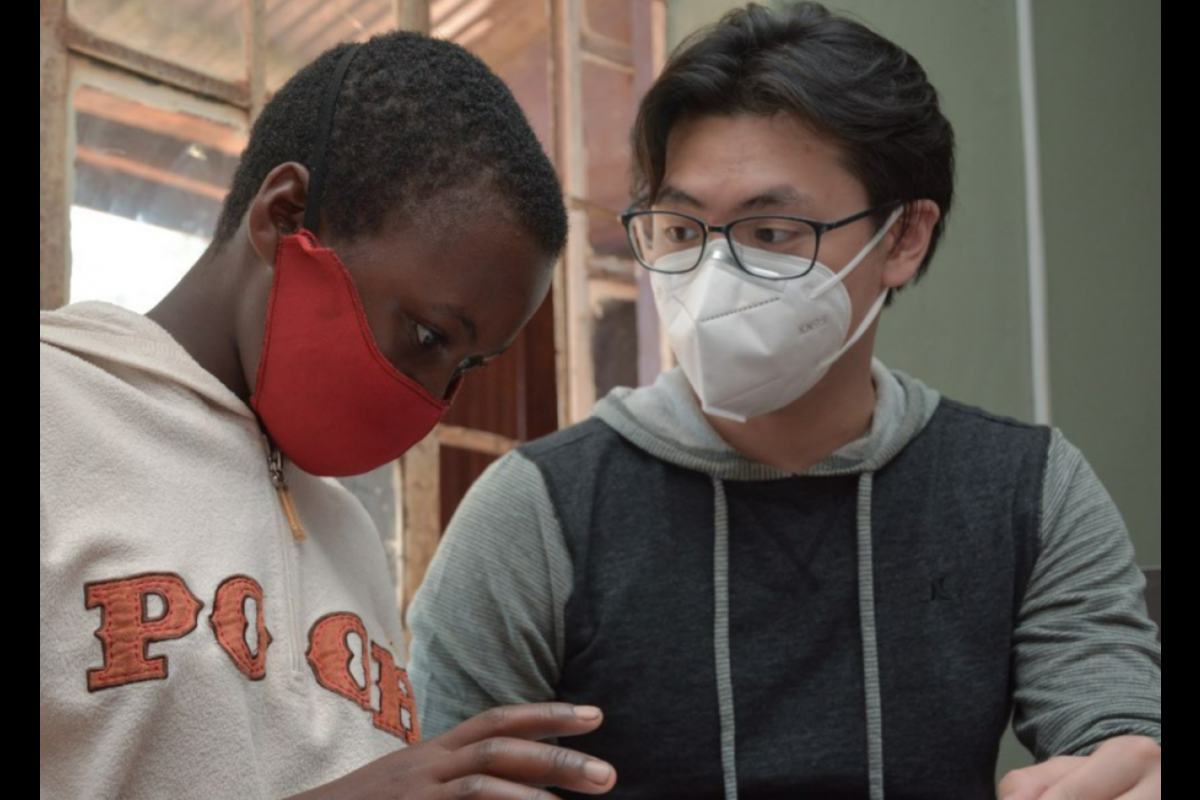Lincoln Scholar spotlight: Taking on malaria and the fight to make health care accessible

Students Benjamin Voller-Brown (left) and Michael Li (right) pose with members of the community in Mukono, Uganda.
How would you try to solve the world’s deadliest disease? That is exactly what ASU seniors Benjamin Voller-Brown and Michael Li are trying to figure out — one mosquito net patch at a time.
Li and Voller-Brown are students in the Ira A. Fulton School of Engineering and are traveling this winter to Ghana to continue research for their company Arceate Health Innovation, where they are seeking to help mitigate the impacts of malaria. Their journey began long before ASU, when they met in high school and were later reunited in the EPICS program.
“We started a chlorination project for a developing community in Peru, and that was how we reconnected,” Li said.
Now their focus has shifted to malaria — a devastating disease that primarily affects people in sub-Saharan Africa. As part of the Grand Challenges Scholars Program, Voller-Brown began developing repair kits for mosquito nets and created his own business by the age of 18.
“The problem is (the mosquito nets) tear very easily, way before manufacturer expectation,” he said. “According to the Mobile Malaria Project, a single tear renders the net useless.”
Li joined the project in their sophomore year to manage grant writing, and as partners they were able to drastically reduce the cost of manufacturing for their repair kits — from $6 to just $0.33.
“I think the best piece of advice I could offer to any aspiring entrepreneur is to find a partner that you really trust and work well with,” Li said.
The duo later joined the Clinton Global Initiative University, which partners undergraduate students with mentorship opportunities, and by coincidence they were partnered with Adriano Schneider of the Genomics Institute at UC Santa Cruz, with whom they stay in contact to this day. Their preliminary research began on a summer trip to Uganda to distribute their first order of kits, and they found that despite manufacturers’ expectations of a three- to five-year life span for a bed net prior to tearing, most nets in the small community were torn within nine months.
“It’s a problem that is bigger than a lot of people might think,” said Voller-Brown. “Our first night we stayed there, they gave us a net to sleep under and it had a hole in it.”
Voller-Brown and Li are excited to return to their research, this time in Ghana and on a much larger scale, with a survey pool five times larger than their initial study. Both are working hard to cover the cost of their trip through grants and crowdfunding.
When asked how the Lincoln Scholars program has impacted his work, Li said, “Health care should be an innate human right, that people don’t have to worry about at all. In founding this company, something we really want to drive is that although we need to make profit, never in a million years would we manufacture something for only $100 and sell it for $10,000. It’s not ethical.”
Voller-Brown also shared about his deep connection to his work and focusing on humane design.
“For me, personally, my fight for health care accessibility began when my mom was diagnosed with multiple myeloma bone cancer,” he said. “She’s in remission now, but she has to pay – before health insurance – $10,000 per pill for her medication to stay in remission.”
And this vision hasn’t stopped at their work around malaria.
“The last time we were in Uganda, we got to visit a school for the blind. We found out they were spending about $20 USD per walking stick. That may not sound like much, but to put that into perspective, that is a lot of weeks’ worth of food,” Li said.
So Li and Voller-Brown did something about it and created a 3D model that could be produced and sold to them for only $5.
“We want to consider the people who are buying from us,” said Li. “We want to make sure they are getting what they need.”
To support Voller-Brown and Li’s mission, or to stay updated on their project, you can visit their PitchFunder page or their website.
More Health and medicine

The science of sibling dynamics: Why we fight, how we relate and why it matters
We have Mother’s Day, Father’s Day and even Grandparents’ Day. But siblings? Usually they get a hand-me-down sweatshirt and, with…

New study seeks to combat national kidney shortage, improve availability for organ transplants
Chronic kidney disease affects one in seven adults in the United States. For two in 1,000 Americans, this disease will…

New initiative aims to make nursing degrees more accessible
Isabella Koklys is graduating in December, so she won’t be one of the students using the Edson College of Nursing and Health…





